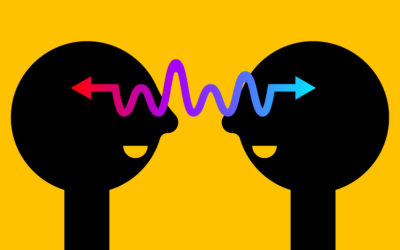Quick Hits
Daily brief research updates from the cognitive sciences

Think like a kid may sound like a good piece of advice – the sort of thing a motivational speaker might importantly pronounce. But it may be harder than we can imagine – it might also help in some learning tasks according to some new research just published.
So, what precisely differs between adults and children when learning?
In this experiment the researchers from Ohio State University gave children between four and five years old and adults a visual identifying task. Fantastical creatures were shown on screens, and they were told that these could be categorised into two groups of “Flurps” and “Jalets”. While doing this the participants wore eye tracking devices to identify where they were focusing attention.
The results showed firstly adults learned the classification quicker. This was due to adults focusing more and identifying key features – they then zoomed in on these features more quickly. The children’s eyes were much more random and roamed the screen and looked at more features more often. This led to them being slower to identify and categorise the Flurps and Jalets.
So, far this suggests that “think like an adult to learn better” is the message motivational speakers should be giving us. Somehow that is not quite so motivational. However, when the researchers switched the task mid-way though the identification tasks they noticed something different.
What the researcher then did was change the critical features that identified Flurps and Jalets. Kids were then much faster than adults to identify what had changed and change their categorisation whereas adults kept their focus on the previously known features.
This shows that kids’ brains and attention is much more exploratory and also random – this also means they are better at seeing more things and also at adapting to changing environments. Actually logical. Adults are better at focusing but worse when it comes to changing environments.
So, the hard bit is actually thinking like a kid – these kids seem to do it naturally as adults also focus naturally. The researchers note that adults can use broad attention, but it seems to require more effort. So, as you focus give some effort to unfocus your attention. It will help you learn better and more flexibly.
That is surely a good thing.

Andy Habermacher
Andy is author of leading brains Review, Neuroleadership, and multiple other books. He has been intensively involved in writing and research into neuroleadership and is considered one of Europe’s leading experts. He is also a well-known public speaker, speaking on the brain and human behaviour.
Andy is also a masters athlete (middle distance running) and competes regularly at international competitions (and holds a few national records in his age category).
References
Nathaniel J. Blanco, Brandon M. Turner, Vladimir M. Sloutsky.
The benefits of immature cognitive control: How distributed attention guards against learning traps.
Journal of Experimental Child Psychology, 2023; 226: 105548
DOI: 10.1016/j.jecp.2022.105548
More Quick Hits
The Surprising Effectiveness of Coaching in Diminishing Burnout Symptoms
Different areas of the brain are associated with empathy – this new research shows how brain regions synchronise to induce empathic responses.
When Love Overrides Other Needs
Different areas of the brain are associated with empathy – this new research shows how brain regions synchronise to induce empathic responses.
The Negative Social Impact of Dealing with AI in the Workplace
Different areas of the brain are associated with empathy – this new research shows how brain regions synchronise to induce empathic responses.
How the Gut Influences Brain Development in Babies
Different areas of the brain are associated with empathy – this new research shows how brain regions synchronise to induce empathic responses.
Your Brain’s Own Cannabinoid Molecules Calm You Down
Different areas of the brain are associated with empathy – this new research shows how brain regions synchronise to induce empathic responses.
Role of Dopamine in Speed and Accuracy of Decisions
Different areas of the brain are associated with empathy – this new research shows how brain regions synchronise to induce empathic responses.






